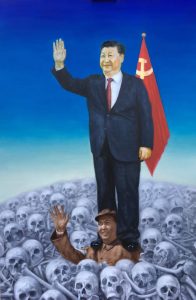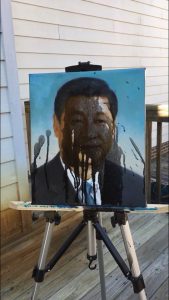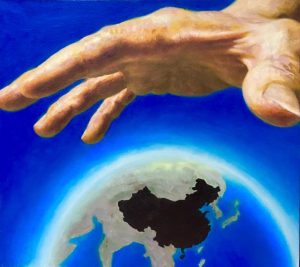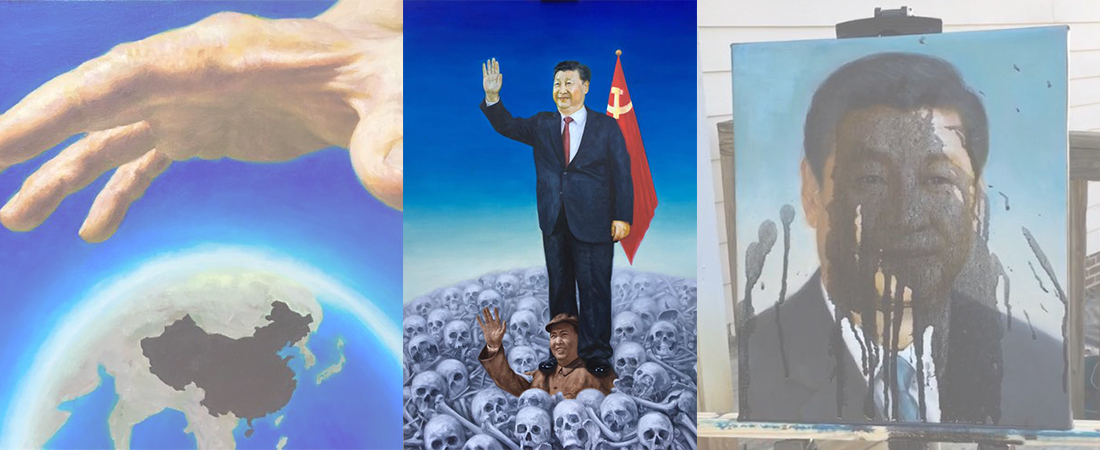
UPDATE: The Town of Cary has reversed their decision and offered to extend the exhibition.
US-based Chinese artist Bing Weng was forced to remove three paintings from a solo exhibition held at the Cary Senior Center in Cary, North Carolina.
Soon after the show was installed, and before it opened on January 25, the artist received an email that she must remove three of the 38 paintings on display, citing “the Town’s desire to not offend facility patrons.” The works were then removed, put in storage, and replaced with three of the artist’s still life paintings.
A jury had reviewed ten sample images approximately one year in advance. Upon being awarded the solo exhibition, the artist received no notification of further vetting by the town nor any explicit content restrictions.

Town administrators explained that they removed the three paintings because their political content was “inconsistent” with the ten images the artist submitted for review. They also said that because the Senior Center is a multi-use facility in a public government building, the three paintings were inappropriate because patrons of the senior center are a “general audience” that does not expect to be challenged by political artworks at the center (as opposed to encountering them in a museum or gallery).
While government officials can decide whether to invite an artist to present their work or not, once they have done so, administrators cannot remove works for subjective reasons related to viewpoint, nor may they remove works after they have been installed based on the fear that they may offend some viewers. Under the First Amendment, the government may not suppress speech or artistic expression in order to avoid offending someone. To suggest that patrons of the Cary Senior Center are unable to handle politically-themed work underestimates them and the breadth of their interests, and removing these paintings prevents them from experiencing and judging the works for themselves.
 Moreover, through these three paintings, Bing Weng addresses human rights abuses that she felt forced to remain silent about at home in China. Cary’s lack of clear guidelines and its abrupt removal of the works warrants a comparison to the way such works are dealt with in China, where artists and curators are left guessing, never knowing exactly what might provoke government censorship, and rendered mute and powerless once it occurs.
Moreover, through these three paintings, Bing Weng addresses human rights abuses that she felt forced to remain silent about at home in China. Cary’s lack of clear guidelines and its abrupt removal of the works warrants a comparison to the way such works are dealt with in China, where artists and curators are left guessing, never knowing exactly what might provoke government censorship, and rendered mute and powerless once it occurs.NCAC also asks that the Town of Cary implement clear guidelines for its exhibitions in the future, as well as a more robust vetting process, so that artists and administrators can clearly understand the parameters and limitations of its exhibition requirements.
See NCAC’s full letter to the Town of Cary below.
Click here for a full screen view:


